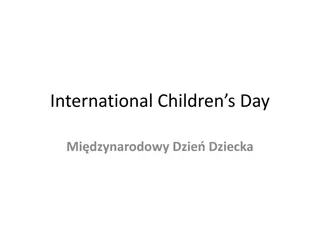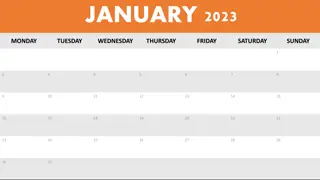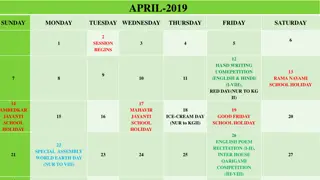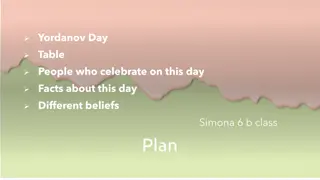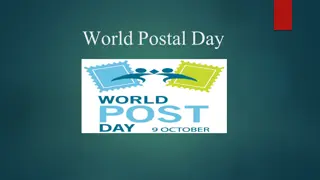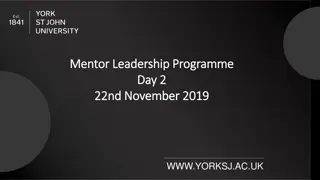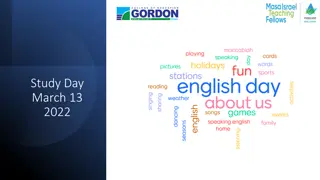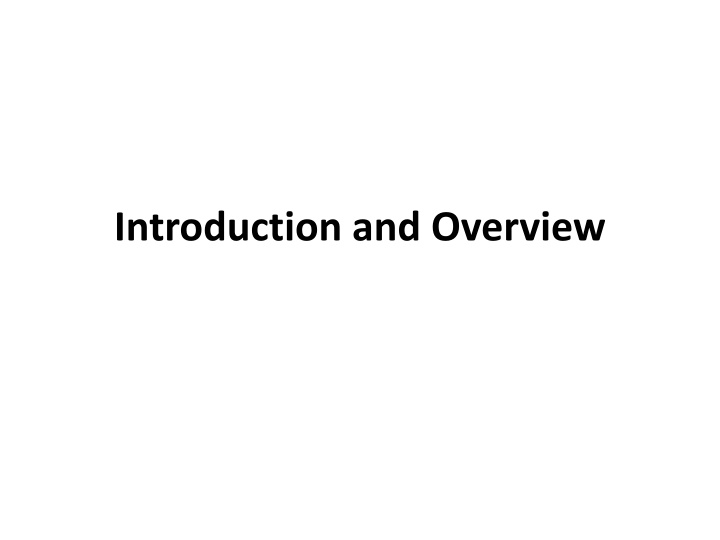
Exploring Qualitative Evidence Synthesis Methods
Delve into the world of Qualitative Evidence Synthesis (QES) methods with a focus on ESQUIRE and meta-ethnography. Understand the stages involved in conducting qualitative systematic reviews and learn from practical examples in the field of healthcare research.
Download Presentation

Please find below an Image/Link to download the presentation.
The content on the website is provided AS IS for your information and personal use only. It may not be sold, licensed, or shared on other websites without obtaining consent from the author. If you encounter any issues during the download, it is possible that the publisher has removed the file from their server.
You are allowed to download the files provided on this website for personal or commercial use, subject to the condition that they are used lawfully. All files are the property of their respective owners.
The content on the website is provided AS IS for your information and personal use only. It may not be sold, licensed, or shared on other websites without obtaining consent from the author.
E N D
Presentation Transcript
Evidence Synthesis of Qualitative Research in Europe (ESQUIRE) To provide participants with state-of-the art perspective on methodology of qualitative systematic reviews (qualitative evidence syntheses). Focus on methods that feature in guidance of Cochrane Qualitative and Implementation Research Methods Group. Also incorporates broader perspective on available methods of qualitative synthesis.
Qualitative Evidence Synthesis Quantitative meta-synthesis, or meta-analysis, aims to pool numerical results of individual quantitative studies, qualitative meta-synthesis looks for themes or constructs that lie in or across individual qualitative studies. Goal not aggregative in sense of adding studies together, as with meta-analysis. Interpretative in broadening understanding of a particular phenomenon. Within broader category of qualitative meta-synthesis, (Cochrane preferred term = qualitative evidence synthesis) narrow term meta-ethnography refers to specific method of data synthesis most widely adopted in the literature to date.
An Example Paterson and colleagues identified 38 studies examining first hand experience of living with diabetes. Prevailing metaphor = concept of balance . Specific sub-themes identified across multiple studies included knowing one's body, learning how to manage diabetes, and fostering supportive, collaborative relationships with others.
Stages of a Qualitative Evidence Synthesis? Formulating the review question Conducting a systematic literature search Screening and selecting appropriate research articles Analyzing and synthesizing qualitative findings Maintaining quality control Presenting findings (Sandelowski & Barroso, 2007)
Centres and Networks: EPPI-Centre Software EppiReviewer QARI Joanna Briggs Institute Cochrane Collaboration Campbell Collaboration Books Noblit & Hare (1988) - Meta-Ethnography Patterson et al (2001) - Meta-Study of Qualitative Health Research Sandelowski et al (2001) - Handbook for Synthesizing Qualitative Research Petticrew & Roberts (2003) - Systematic Reviews in Social Sciences Mays, Pope, Popay (2007) - Synthesizing Qualitative and Quantitative Health Research Howell Major & Savin-Baden (2010) - Introduction to Qualitative Research Synthesis Hannes & Lockwood (2011) - Synthesizing Qualitative Research: Choosing the Right Approach Saini & Schlonsky (2012) - Systematic Synthesis of Qualitative Research Booth et al (2011) Systematic Approaches to a Successful Literature Review Gough, Oliver & Thomas (2012) - An Introduction to Systematic Reviews Suri (2013) - Towards Methodologically Inclusive Research Syntheses: Expanding possibilities
Plethora of terminology Meta-Ethnography (1988) Meta-Study (2001) Narrative Synthesis (2002) Realist Synthesis (2002) Meta-Narrative review (2005) Critical Interpretative Synthesis (2006) Qualitative Evidence Synthesis (2007) Qualitative Research Synthesis (2010) Qualitative Interpretive Meta-Synthesis (2013)
Qualitative Metasynthesis An interpretation of qualitative findings that are themselves interpretive syntheses of data including phenomenologies, ethnographies, grounded theories, and other integrated and coherent descriptions or explanations of phenomena, events, or cases that are the hallmarks of qualitative research (Sandelowski & Barroso, 2007, p. 151)
Expected outcomes of this Programme: By end of this programme participants will be able to: Describe main methods of evidence synthesis in terms of their strengths and weaknesses Rehearse stages of systematic review process, specifically in relation to methodological challenges associated with synthesis of qualitative evidence Distinguish between aggregative and interpretive approaches to qualitative evidence synthesis Identify circumstances under which framework analysis or grounded theory-based approaches to synthesis are most appropriate Describe requirements for presenting data and disseminating findings of qualitative evidence syntheses, both as stand-alone reviews and when integrating with outputs of quantitative systematic reviews.
Day One 13:00 p.m. 17:00 p.m.Overview, Focusing the Question and Searching 13:00 pm Introduction and Overview Dr Andrew Booth 13:30 pm Focusing the Question Dr Janet Harris 14:15 pm Qualitative Evidence Synthesis Case Study Dr Andrew Booth 14:45 Break 15:15 pm Planning Your Review Dr Andrew Booth Ms Helen Woods 15:45 pm Searching for Qualitative Evidence , Using Filters and Supplementary Methods 16:45 pm Summary of the Day Dr Andrew Booth 19:00pm Evening Course Dinner (Halifax Hall)
Day Two Session Two Data Extraction and Quality Assessment 09.30am Choosing a Method of Qualitative Synthesis 09.45 am Introducing QES Methods the Basics (Thematic Synthesis and Framework Synthesis) Dr Andrew Booth Dr Andrew Booth, Dr Kate Flemming and Mr Duncan Chambers Coffee Break (10:30 am -10:45 a.m.) 10.45am Workshop: Thematic Synthesis and Framework Synthesis (Part One Data Extraction) 11:30 Workshop: Thematic Synthesis and Framework Synthesis (Part Two Quality Assessment) 12:30 pm -13:30 pm Lunch Dr Andrew Booth, Dr Kate Flemming and Mr Duncan Chambers
Day Two Session Three Analysis, Synthesis and Writing Up 1 13.30pm Workshop: Thematic Synthesis and Framework Synthesis (Part Three Synthesising across Studies) Dr Andrew Booth, Dr Kate Flemming and Mr Duncan Chambers Tea Break (3.00-3.15 pm) 15.15pm Workshop: Thematic Synthesis and Framework Synthesis (Part Four Completing the Analysis) 15:45 pm Feedback and Summing Up 16:15 pm Where to Next? 16:30 pm Writing Up and Dissemination Dr Andrew Booth, Dr Kate Flemming and Mr Duncan Chambers Dr Kate Flemming Dr Andrew Booth 17.00pm Close
Free Evening West Street? Ecclesall Road? Broomhill? Or Sheffield City Centre?
Day Three Session Four - Methodological Challenges - Focusing, Study Identification and Assessment Chair Dr Andrew Booth 09.00 am Realist Synthesis 101 Dr Andrew Booth 09.30 am Meta-ethnography 101 Dr Ruth Garside 10.00 am Overview of Methodological Issues Dr Andrew Booth 10.15 am Issues and Challenges around Scoping, Focusing the Question & Use of Models and Theory 11.00 am Issues and Challenges around Searching the Literature 11.20 am Coffee Dr Janet Harris Dr Andrew Booth 11.50 am Issues and Challenges around Assessing Qualitative Research 12.30 pm Lunch Dr Karin Hannes
Day Three Session Five - Methodological Challenges - Synthesis and Integration Chair Dr Janet Harris Dr Ruth Garside 13.30pm Issues and Challenges around Synthesising Qualitative Research 14.15pm Issues and Challenges around Integrating Qualitative and Quantitative Data 15.00 pm Methodological Roundtable Discussion Featuring - Dr Andrew Booth, Dr Ruth Garside, Dr Karin Hannes & Dr Janet Harris 15.20 pm The Way Forward Taking your Interest Further - 15.30 pm Tea and Departure Dr Andrew Booth Dr Janet Harris & Dr Andrew Booth
ASQUS Discussion List http://www.jiscmail.ac.uk/asqus
http://www.mendeley.com/groups/518691/cochrane-qes- register/papers/
References Booth A. "Brimful of STARLITE": toward standards for reporting literature searches. J Med Libr Assoc. 2006 Oct;94(4):421-9, Major, C., & Savin-Baden, M. (2010). An introduction to qualitative research synthesis: Managing the information explosion in social science research. London: Routledge. Paterson BL, Thorne S, Dewis M. Adapting to and managing diabetes. Image J Nurs Sch. 1998; 30 (1): 57 62. Sandelowski, M. and Barroso, J. (2007) Handbook for Synthesizing Qualitative Research. New York: Springer Publishing Company. Tong, A., Palmer, S., Craig, J. C., & Strippoli, G. F. (2014). A guide to reading and using systematic reviews of qualitative research. Nephrology, dialysis, transplantation: official publication of the European Dialysis and Transplant Association-European Renal Association.








